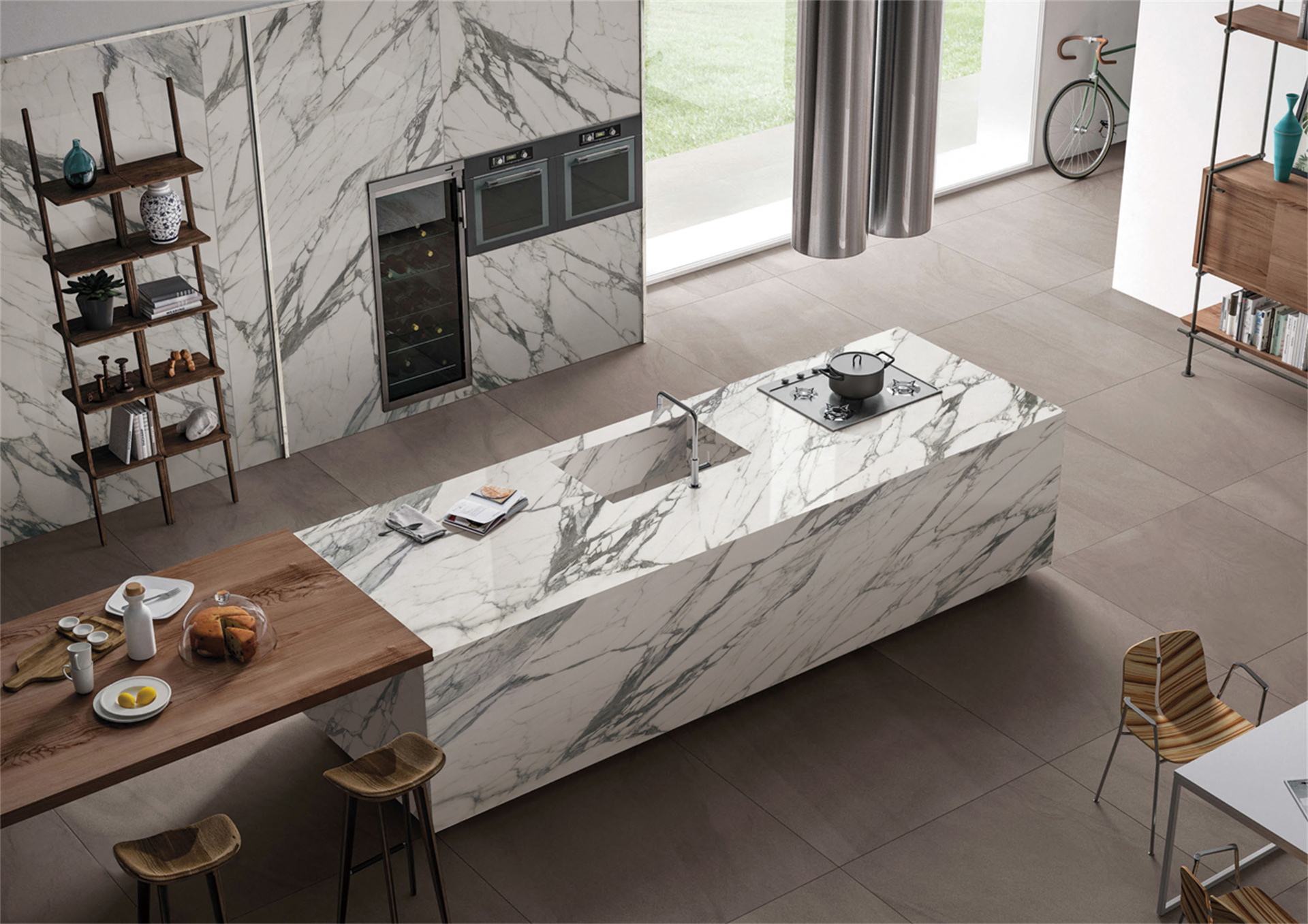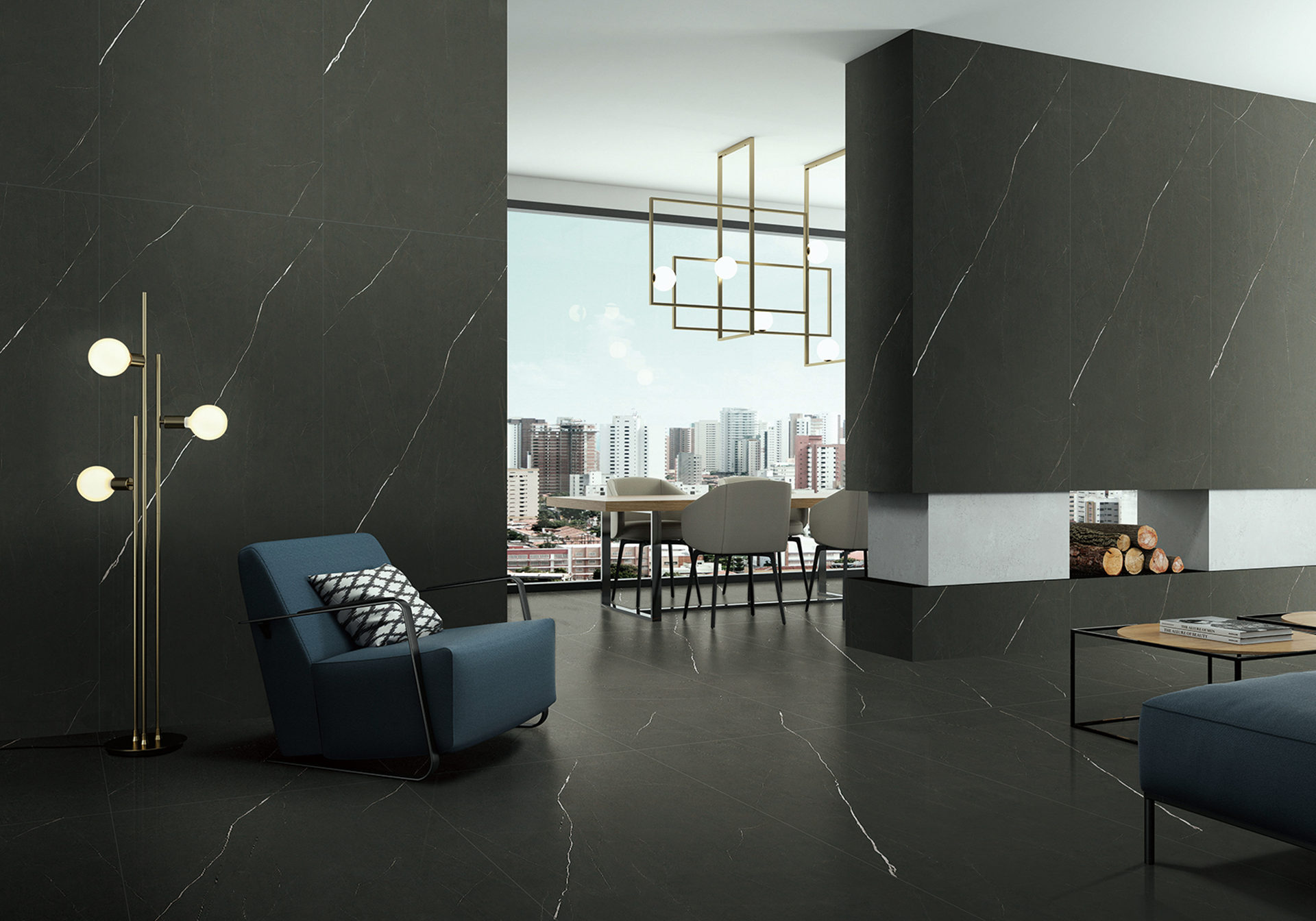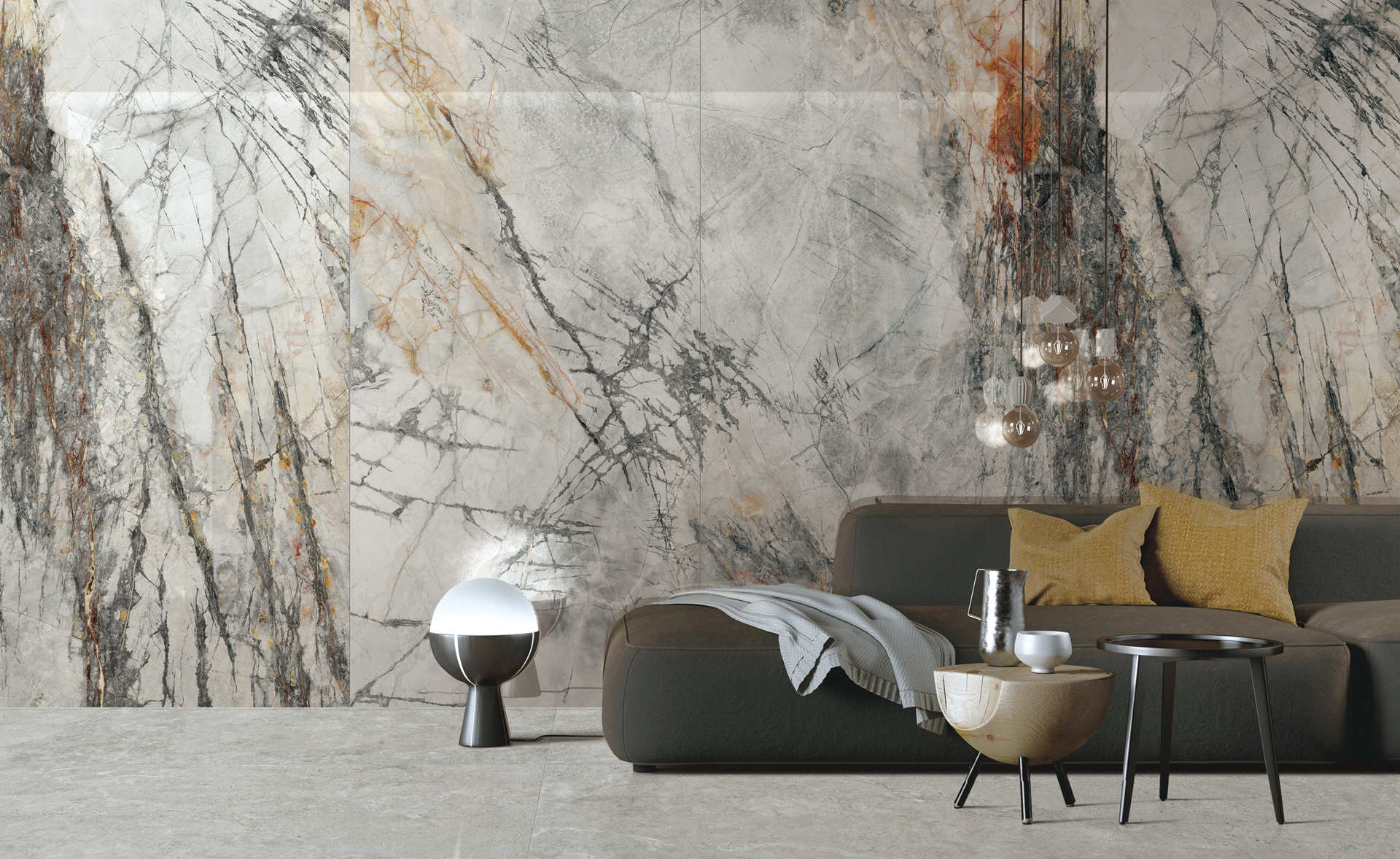Sintered stone has emerged as a popular flooring option in recent years, captivating homeowners and designers alike with its remarkable durability, versatility, and aesthetic appeal. This unique material blends the beauty of natural stone with the strength and resilience of manufactured goods, making it suitable for both residential and commercial applications. In this comprehensive guide, we will delve into the world of sintered stone flooring.
What Is Sintered Stone?
Sintered stone is a man-made material created through a process called sintering, which involves subjecting a mixture of natural minerals, such as quartz, feldspar, and silica, to extreme heat and pressure. This technique fuses the minerals together, resulting in a solid, non-porous, and highly resistant surface that has the look of natural stone.
Unlike quartz countertops, which use resins as binders, sintered stone contains no additives or resins, making it an eco-friendly and sustainable choice for flooring.
Characteristics Of Sintered Stone Flooring
Sintered stone flooring boasts a range of impressive characteristics that set it apart from other flooring materials:
Durability
One of the most significant advantages of sintered stone is its exceptional durability. It is highly resistant to scratches, stains, and wear, making it an ideal choice for high-traffic areas such as entryways, kitchens, and commercial spaces.
Water and Heat Resistance
Sintered stone is non-porous, which means it does not absorb liquids or moisture. This property makes it resistant to water damage, stains, and the growth of mold and mildew. Furthermore, sintered stone can resist high temperatures without warping or damage,
making it ideal for usage near heat sources such as stoves and fireplaces.
UV Resistance
Unlike some natural stones that may fade or discolor when exposed to direct sunlight, sintered stone is UV resistant. This characteristic makes it an excellent choice for outdoor applications, such as patios and pool surrounds, as well as indoor spaces with large windows or skylights.
Design Versatility
Sintered stone flooring is available in a wide array of colors, patterns, and finishes, allowing for endless design possibilities. It may simulate the appearance of real materials such as marble, granite, and wood, as well as providing solid colors and unique patterns.
Benefits Of Sintered Stone Flooring
In addition to its impressive characteristics, sintered stone flooring offers several benefits for homeowners and designers:
Low Maintenance
Thanks to its non-porous surface, sintered stone flooring is incredibly easy to clean and maintain. Regular sweeping and mopping with a mild detergent is typically sufficient to keep the floors looking pristine. Unlike natural stone, sintered stone does not require sealing or other specific treatments to retain its beauty and durability.
Hygienic Surface
The non-porous nature of sintered stone also makes it a hygienic choice for flooring. It does not harbor bacteria, mold, or allergens, creating a healthier living environment, especially for those with allergies or respiratory sensitivities.
Longevity
With proper care and maintenance, sintered stone flooring can last for decades. Its durability to wear, scratches, and stains guarantees that its beauty and functionality last over time,
making it an affordable investment for homeowners.
Applications Of Sintered Stone Flooring
Sintered stone flooring is versatile and can be used in various settings, both residential and commercial:
Living Rooms and Bedrooms
The durability and design versatility of sintered stone make it an excellent choice for living rooms and bedrooms. Its resistance to scratches and stains means it can survive the wear and strain of daily life, and its aesthetic appeal lends a sense of refinement to any environment.
Kitchens and Bathrooms
Sintered stone's water resistance and hygienic properties make it an ideal flooring option for kitchens and bathrooms. It can withstand moisture and spills without damage, and its non-porous surface prevents the growth of bacteria and mold.
Outdoor Spaces
Thanks to its UV resistance and durability, sintered stone flooring is well-suited for outdoor applications, such as patios, pool decks, and walkways. It can resist exposure to the outdoors without fading or deterioration, making it a durable and low-maintenance option for outdoor flooring.
Conclusion
Sintered stone flooring offers a perfect blend of beauty, durability, and practicality, making it an increasingly popular choice for both residential and commercial spaces. Its distinct properties, such as resistance to scratches, stains, water, and UV rays, along with its low care requirements and design flexibility, make it an appealing alternative to traditional flooring materials such as hardwood, tile, and natural stone.



